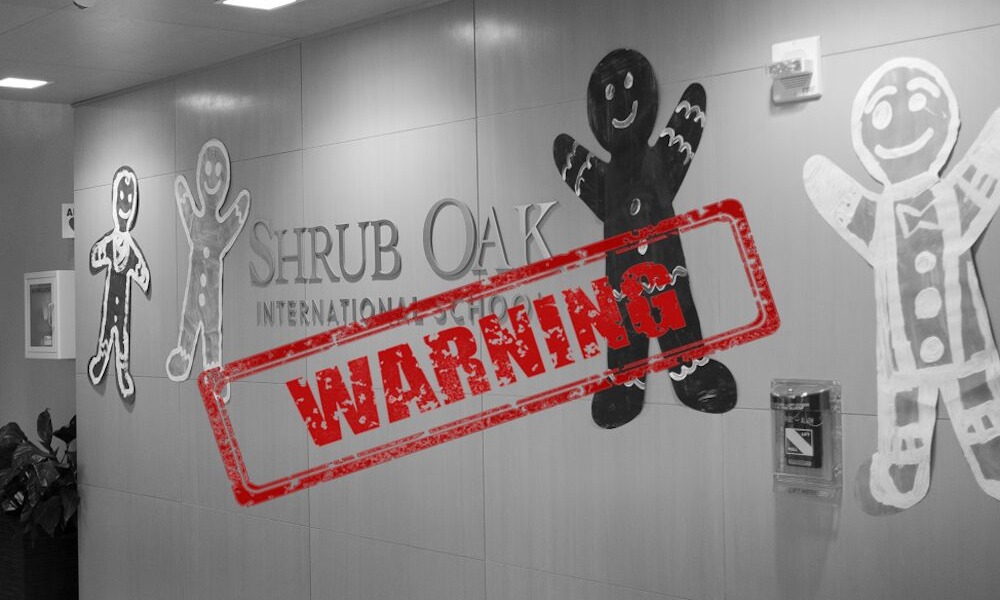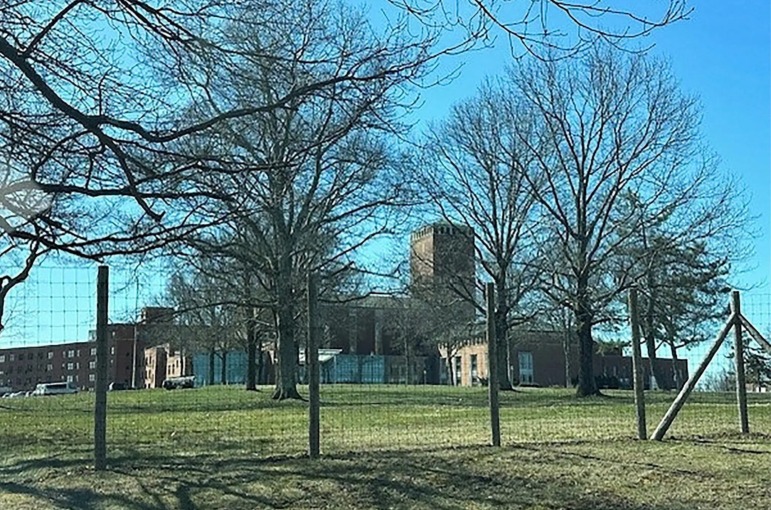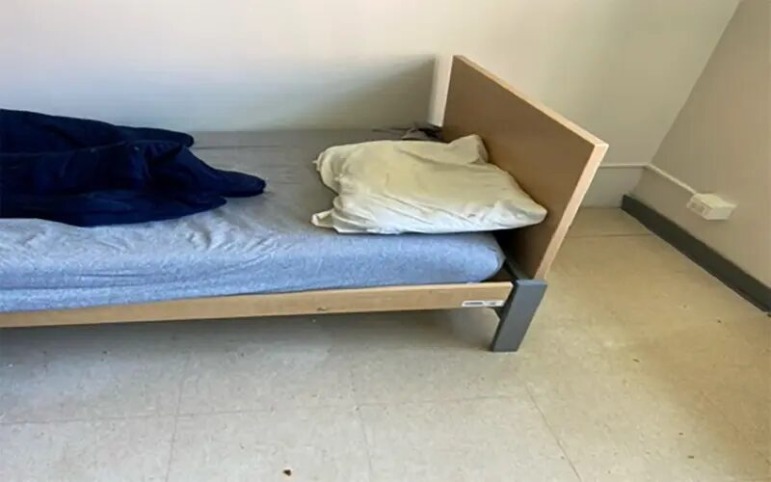
This story was originally published by ProPublica.
Two more states are now scrutinizing a New York boarding school for autistic students and have warned school districts about troubling conditions there.
Read all our coverage on DYT here.
In Connecticut, education officials visited Shrub Oak International School and alerted districts that a state watchdog group determined there were ongoing “serious safety concerns” at the unregulated for-profit private school. Separately, the state’s Department of Developmental Services, which serves residents with intellectual disabilities and autism, has decided to stop sending more students there, an agency spokesperson told ProPublica.
DDS described the facility as looking “more akin to a penal institution than an educational campus.”
Washington education authorities, meanwhile, visited Shrub Oak this month and warned school districts to contact the state before considering enrolling students there. Officials are reviewing the state’s relationship with the school, officials told ProPublica.

Courtesy Connecticut Department of Developmental Services
The perimeter fencing at Shrub Oak International School created “a visual effect more akin to a penal institution than an educational campus,” according to the Connecticut Department of Developmental Services.
The scrutiny of Shrub Oak comes as a ProPublica investigation published in May documented how parents and workers repeatedly asked New York authorities to investigate their concerns at the school to no avail.
In Massachusetts, officials have already set in motion a plan to pull students out by the end of this month after realizing that Shrub Oak had not sought New York’s approval to operate a school for students with disabilities. Shrub Oak, which opened in 2018, has had about 85 students from 13 states this school year. About 20 students came from Connecticut, Massachusetts and Washington combined. Tuition this school year is $573,200 for students who require a dedicated aide for most of the day.
No New York government agency oversees Shrub Oak because it is not an approved special-education program. It is not licensed as a residential facility.
“From a child health and safety perspective, that is crazy,” said Sarah Eagan, who leads the Connecticut Office of the Child Advocate. “It’s really unsafe — they’re not subject to regular inspections, not subject to licensing standards.”
Eagan’s office recently joined an investigation of Shrub Oak that was begun last year by Disability Rights Connecticut, a federally funded watchdog that provides legal services and advocacy for people with disabilities. The child advocacy office will be investigating how the state monitors students in out-of-state schools.

Courtesy Connecticut Department of Developmental Services
A dorm room at Shrub Oak International School. Connecticut Department of Developmental Services employees who made an unannounced visit noted concerns about conditions there.
Disability Rights Connecticut noted that, during one of its visits, a student was forced to sleep on the linoleum floor with no bed, “covered in a blanket that appeared to be similar to a moving pad.” The organization also said Shrub Oak used a practice called “hold and close,” which involves placing a student in a padded room, closing the door and holding it shut. That method of managing student behavior would be illegal in many states, including Connecticut.
The group urged the Connecticut State Education Department to bar the use of public money to pay tuition at Shrub Oak and stop allowing students to be placed there. The department is considering what to do next.
In its own investigation, Connecticut’s developmental services agency made an unannounced visit in March and concluded that individuals were not in “immediate jeopardy” but that students were being poorly served as staff focused primarily on managing behavior and not on education or life skills.
Students were eating from takeout containers because Shrub Oak lacks a working kitchen.
Investigators wrote this “compromises their dignity, nutrition and overall well-being.”
In Illinois, which has 15 students at Shrub Oak — more students than come from any state other than New York — state education officials contacted school districts to remind them that they’re responsible for students’ safety and well-being. Illinois State Board of Education spokesperson Lindsay Record said state officials don’t monitor students when they’re sent to residential schools that Illinois does not approve, like Shrub Oak. State law requires the department to fund those schools but does not give it the power to investigate them.
[Related: Illinois school districts sent kids to a for-profit out-of-state facility that isn’t vetted or monitored]
“ISBE has no authority to stop allowing or approving the placement of students in any non-ISBE approved program including and not limited to Shrub Oak,” Record wrote in answer to questions from ProPublica.
Chicago Public Schools plans to enroll a student at Shrub Oak starting July 1 at a cost of $597,990 for one year, records show. The district has sent three students to Shrub Oak in recent years but none of them are still there. A district official said in a public Chicago Board of Education meeting on Tuesday that while the district is aware of news stories about problems at Shrub Oak, the student being sent there needs the school’s services and the student’s parent wants the child to attend.
Education officials in New York declined to comment.
There were about 30 students from New York at Shrub Oak this past school year; tuition for New York students often is publicly funded. A disability rights group in that state has been investigating Shrub Oak and, according to court records, has found troubling conditions as well.
[Related: New York Education Department hindered an abuse investigation at Shrub Oak boarding school for autistic youth]
In at least five incidents involving suspected abuse, Shrub Oak told local police that it had fired employees, records show. One of them, a former employee charged with menacing, harassment and endangering the welfare of a disabled person — a student from Chicago — is due in court this week.
Shrub Oak spokesperson Richard Bamberger previously said that the school contacts police and fires employees who are “involved in an issue.” He did not respond to a request for comment for this story but has said in the past that the school enrolls students who other schools have rejected. Many of them have complex needs and struggle with self-injurious behaviors, aggression and property destruction, Bamberger has said. He has said that security is a top priority and the property is fenced in because some students have left other schools they’ve attended without permission.
Tuition this school year is $573,200 for students who require a dedicated aide for most of the day.
School districts in about a dozen states have sent students to Shrub Oak after determining they can’t be served in their local schools — sometimes after parents sued their districts to be able to send their children there. Most students’ tuition is paid by their public school districts, which are legally obligated to educate all students.
As the investigations continue, parents of students with profound disabilities who need a high level of support are fretting over the limited number of school options. Some fear the scrutiny of Shrub Oak could lead more states or school districts to pull public funding, leaving them with one less choice for their children.
Some parents have told ProPublica they feel their own children are safe and want them to stay at the school.
Eagan, the Connecticut child advocate, acknowledged the challenges for parents but said having their children at a facility with no oversight isn’t a good solution. “What they need and deserve is a reliable, well-regulated system that ensures their child can access safe and appropriate care in the least restrictive environment. And they’re not getting it.”
A Connecticut mother whose son went to Shrub Oak for five months until January 2023 said she is glad her state is intervening. Celeste and Roger Brouillard pulled their son from Shrub Oak because of indications he was harmed there, records show.
“As a taxpaying citizen, not just a parent who had a child who was physically and emotionally harmed there, they should cease funding immediately,” Celeste Brouillard said, referring to state officials.
Her son Matthew was 17 when he transferred from a different residential school to Shrub Oak after “they made all the promises in the world” that he would get help with daily living and vocational skills as he got older. Instead, “it was five months of hell,” Celeste said.
Matthew lost 16 pounds, was left alone in his room for long periods of time, and got multiple black eyes that the staff could not explain, she said.
In December 2022, doctors at the Connecticut Children’s emergency department noted bruising on Matthew’s back, neck and face and tried to report their concerns that he may have been harmed to four New York agencies, according to medical records.
An official at Matthew’s school district, Katie Krasula, also filed an abuse and neglect report in New York in February 2023 after receiving photos, staff names and other information, according to an email she sent to Shrub Oak that ProPublica obtained through an open records request. She told Shrub Oak she had concerns about Matthew’s “continued safety and the ability of your staff to provide appropriate care and supervision for him.”
The school district, Simsbury Public Schools, had contracted to pay more than $530,000 for nearly a year of tuition and an aide for 16 hours a day. Matthew transferred to another residential school.
Shrub Oak’s spokesperson has declined to comment on individual students’ experiences, but after ProPublica’s investigation published last month, the school posted a statement online that downplayed the publication’s findings and told parents “their children are safe, have always been safe, and are being taught and cared for by trained and caring professionals.”
Shrub Oak also has criticized the investigation by Disability Rights Connecticut and another by Disability Rights New York.
In an April letter from a Shrub Oak attorney to the watchdog organizations, the school said investigators were unqualified to observe or understand autistic students. The letter criticized the groups for not sharing their findings with the school despite the advocacy organizations having made more than 17 requests for documents and information and more than nine unannounced visits.
The attorney wrote that the school is cooperating but the organizations “are not focused on a complete and balanced understanding of the services and environment SOIS provides to its students. Accordingly, the resulting reports of their investigations are likely to unfairly portray SOIS in a negative light.”
***
Jennifer Smith Richards is a reporter for ProPublica. She most recently worked for the Chicago Tribune, where her work exposed student ticketing at school, abusive educators, government misspending, sexual abuse in schools, lapses in police accountability and the mistreatment of students with disabilities.
Jodi S. Cohen is a reporter for ProPublica whose work has examined the widespread practice of police ticketing students at school for minor infractions, the misuse of seclusion and restraint in Illinois public schools, systemic problems in Michigan’s juvenile justice system and a college financial aid scam.
ProPublica is a Pulitzer Prize-winning investigative newsroom. Sign up for The Big Story newsletter to receive stories like this one in your inbox.

